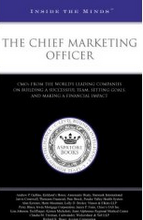
We find Andrew Zolli one of the more interesting and relevant futurists out there these days. He recently wrote a great piece in Fast Company (here) that kicked off with a quote from renown free-marketeer Milton Friedman:
“There is one and only one social responsibility of business”, Friedman wrote back in 1970, and that is to “engage in activities designed to increase profits.”
As soon as we read this quote here in the Garage, we knew that Zolli had nailed it: Friedman’s pronouncement marked a watershed moment for global business, a tipping point for the guiding principal of the era: profitable self-interest would prove to be the only reliable endgame.
And everyone knows how things played out with the help of Friedman’s compass. The rise of the activist shareholder movement. Reagan-era deregulation. Michael Douglas’ declaration that “Greed is Good” in the movie Wall Street. The tearing down of the Berlin Wall. The creation of the Jack Welch rules of management.
All of this and more helped companies achieve higher performance throughout the 80s and 90s. “Mr. Market” surged, helped along by a long-term decline in interest rates and a speculative bubble or two. A lot of executives (and shareholders) grew rich.
Greed took a victory lap. Capitalistic self-interest flourished. Customers got better and cheaper products. All in, Friedman’s playbook worked.
Of course, playbooks rarely cover all the bases equally well. Which brings us to another quote, this one from advertising icon David Ogilvy:
“The customer is not an idiot, she is your wife.”
The point Ogilvy was making is that you can’t pull the wool over your customers’ eyes. They notice everything and apply their observations with keen self-interest. And today, with only 13% trust levels in business, the customer seems to be saying: “Yes, yes we get it. Big companies have improved performance greatly, but they are not in the game primarily to benefit us." And this means that companies live in a world where the customer may buy from them, but probably doesn't trust them and may not like them. And the key point for management? Low trust changes the nature of virtually every transaction -- for the worse. Just ask Michael Dell. It's a headwind you have to take into account as you steer the business.
All of this brings us back to Andrew Zolli and the title of his Fast Company piece: “Business 3.0: The oblivious Capitalist’s Days Are Numbered.” In this case he casts his eye to the future and the environment and concludes that a host of global forces will force a remake of the playbook for business success. Business will profit by driving a wider social agenda and “the clinical, value-neutral capitalism of old” will fall by the wayside.
We agree. Long-term growth has always come down to this: finding and keeping customers at a profit. And the playbook now requires companies to place greater attention on building trust and reputational performance. GE, Toyota and other leaders are already well on their way towards profiting from the wider social agenda.
As one example, product value propositions are being stretched by companies of all kinds to appeal to the LOHAS segment (i.e. customers who focus on lifestyles of health and sustainability.) These folks do yoga, buy Energy Star appliances, drive hybrids and read books by Andrew Weil. And guess what? There are some 50 million of them out there paying a premium for products. They make up an estimated $228 billion market and are growing.
In the LOHAS market, the reputational performance of the company you do business with matters. Further evidence that for aspiring corporate trustmeisters, it’s time once again to reinvent the playbook. After all, that’s why we’re here in the Garage, isn’t it?







No comments:
Post a Comment